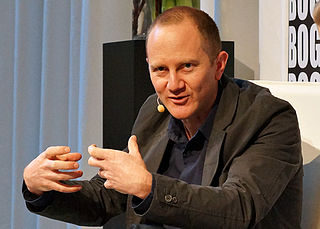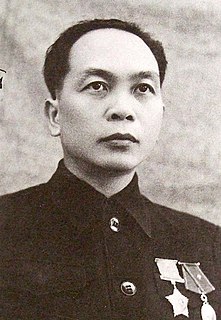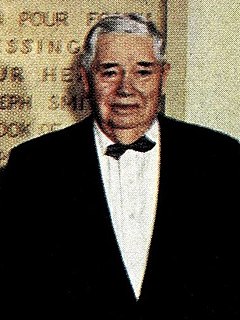A Quote by Chris Cleave
I write in the novel's afterword that our recent wars "finish not with victory or defeat but with a calendar draw-down date and a presumption that we shall never be reconciled with the enemy".
Related Quotes
The good fighters of old first put themselves beyond the possibility of defeat, and then waited for an opportunity of defeating the enemy. To secure ourselves against defeat lies in our own hands, but the opportunity of defeating the enemy is provided by the enemy himself. Thus the good fighter is able to secure himself against defeat, but cannot make certain of defeating the enemy.
Not only does the Charter Organization not prevent future wars, but it makes it practically certain that we shall have future wars, and as to such wars it takes from us the power to declare them, to choose the side on which we shall fight, to determine what forces and military equipment we shall use in the war, and to control and command our sons who do the fighting.
General Napoleon says that 'Never interrupt your enemy when he is making a mistake.' Well, I suggest doing the opposite: Interrupt your enemy when he is making a mistake. Don't be opportunist; don't benefit from the weakness of your enemy! Be just even to your enemy! Try to find a way to defeat him without harming him; prove to be as intelligent as to find such a way! Only then, your victory will be meaningful and honourable!
Commonly, people believe that defeat is characterized by a general bustle and a feverish rush. Bustle and rush are the signs of victory, not of defeat. Victory is a thing of action. It is a house in the act of being built. Every participant in victory sweats and puffs, carrying the stones for the building of the house. But defeat is a thing of weariness, of incoherence, of boredom. And above all of futility.
In every adversity there lies the seed of an equivalent advantage. In every defeat is a lesson showing you how to win the victory next time. [But you must know enough to realise this, lest you focus more on the defeat than finding the lesson you paid for with the defeat. With every defeat and mistake, you have the logical right to get excited about the future when you will understand and be able to apply the lessons and thereby turn defeat and temporary failure into victory and permanent success.]




































